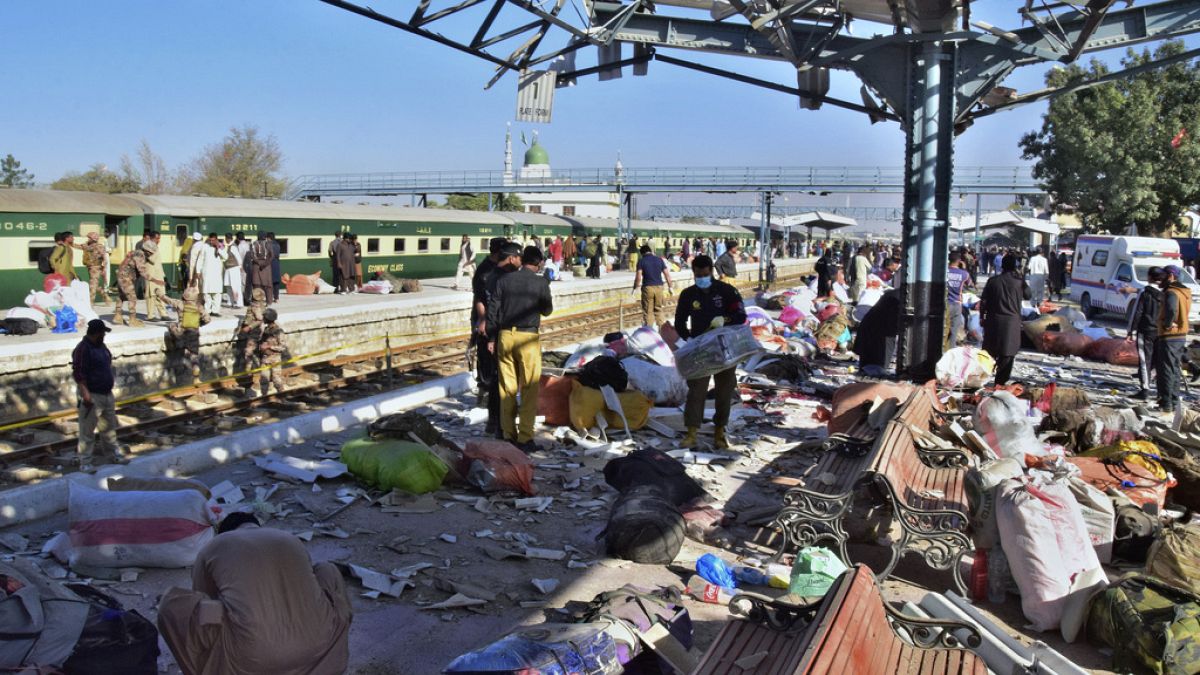A suicide bomber struck a train station in Baluchistan province, Pakistan, killing at least 24 people and wounding around 50 others, including security officers. The attack targeted passengers waiting to board a train from Quetta to Rawalpindi. The Baluchistan Liberation Army claimed responsibility, stating that the bomber targeted troops present at the station. The group is known for seeking independence from the Pakistani government through an ongoing insurgency. Among the casualties were both civilians and security forces, with some critically wounded passengers succumbing to their injuries at the hospital.
The Prime Minister of Pakistan, Shehbaz Sharif, condemned the attack and vowed that those responsible would face severe consequences. The bombing comes shortly after a similar incident where a bomb attached to a motorcycle killed nine people, including police officers and children, in Baluchistan. The province, rich in oil and minerals, is home to the ethnic Baloch minority, who allege discrimination and exploitation by the central government. In addition to separatist groups like the BLA, Islamic militants also operate in the region, targeting security forces and foreigners, particularly Chinese nationals working on infrastructure projects as part of China’s Belt and Road Initiative.
The BLA has previously demanded the cessation of Chinese-funded projects and the evacuation of Chinese workers from Pakistan to avoid further attacks. In recent months, the group has claimed responsibility for multiple attacks on Chinese nationals, including a suicide bombing near the Karachi airport that killed two individuals. The Chinese government has urged Pakistan to enhance security measures to protect its citizens working on various projects in Baluchistan and other parts of the country. The province’s strategic location and abundant resources make it a target for various militant groups seeking to destabilize the region and challenge the authorities.
The Pakistani government has been engaged in efforts to quell the violence in Baluchistan and address grievances of the local population. However, the enduring conflict between separatist groups, militants, and security forces continues to pose a threat to the stability and development of the region. The recent attack at the train station underscores the persistent challenges faced by authorities in combating terrorism and ensuring the safety of civilians and foreign workers. As investigations into the bombing unfold, the government must remain vigilant and take necessary actions to prevent future incidents while addressing the root causes of extremism in Baluchistan.
The tragic incident at the train station highlights the urgent need for enhanced security measures and coordinated efforts to combat terrorism in Baluchistan. The attack serves as a stark reminder of the ongoing threats posed by separatist groups and extremist elements in the region. The Pakistani government must prioritize the safety of its citizens and foreign workers, particularly those involved in crucial infrastructure projects. By strengthening intelligence operations, enhancing border security, and addressing socio-economic disparities, authorities can mitigate the risks of future attacks and promote peace and stability in Baluchistan. The international community, including China, must also continue to support Pakistan in its counterterrorism efforts and work towards a sustainable resolution to the conflict in the province.











